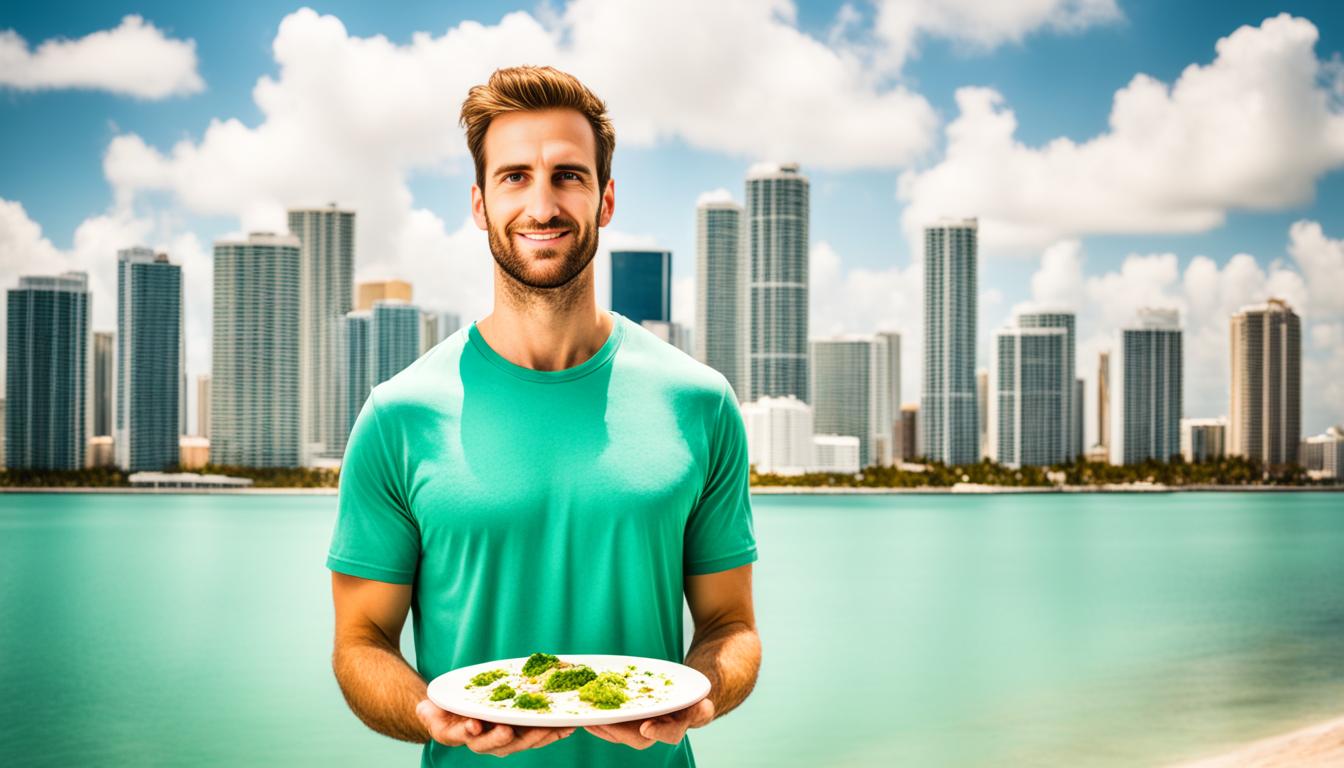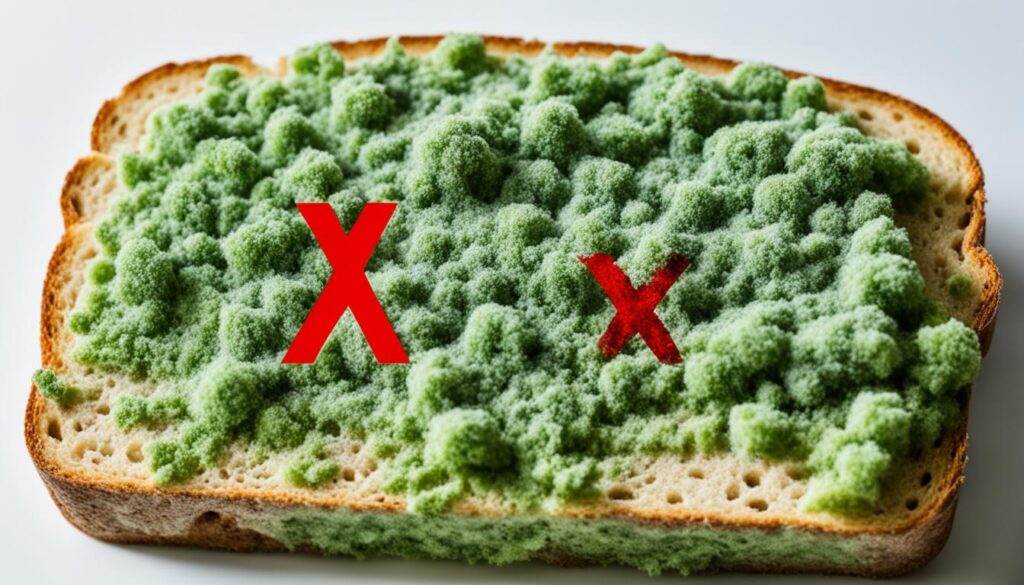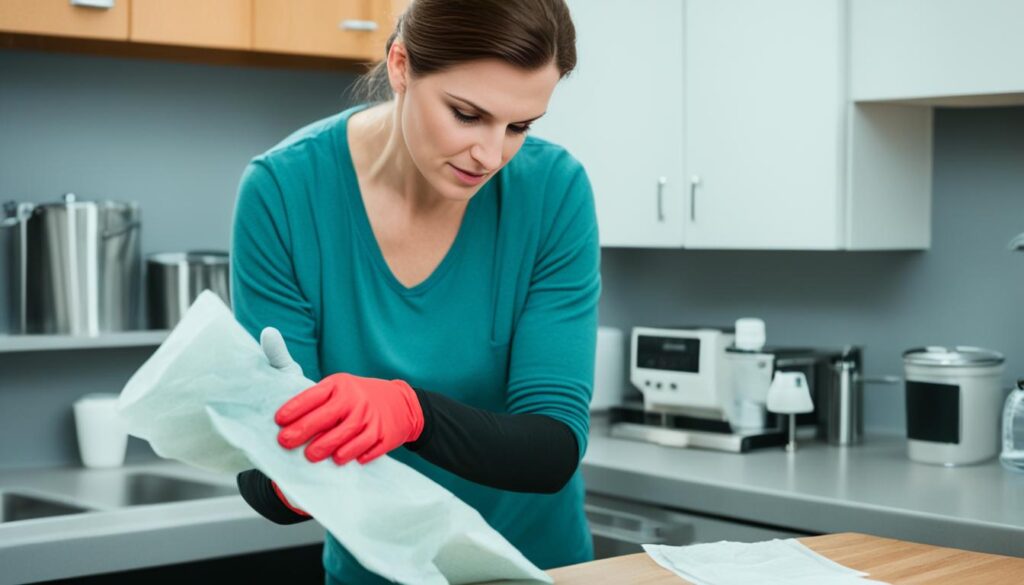
Eating Mold Miami: Risks & Safety Tips to Know
Consuming mold-contaminated food can pose serious health risks. In Miami, where high humidity and warm temperatures create favorable conditions for mold growth, it is crucial to be aware of the dangers and take necessary precautions. This article will explore the potential risks of eating moldy food in Miami and provide essential safety tips to handle mold-contaminated food safely.
Key Takeaways:
- Moldy food in Miami can lead to various health issues, including respiratory problems, allergic reactions, and gastrointestinal discomfort.
- It is essential to properly identify and handle mold-contaminated food to prevent the spread of mold spores.
- Safe food storage practices, such as keeping food refrigerated and using airtight containers, can help reduce the risk of mold growth.
- When in doubt, it is best to discard moldy food rather than attempting to salvage it.
- Contact Fix Mold Miami at 305-465-6653 for professional mold assessment and remediation to ensure your safety.
Potential Health Risks of Eating Moldy Food
Eating mold-contaminated food can pose various health risks. When you consume food that has mold growth, you expose yourself to potential health issues, including:
- Respiratory problems: Inhaling the spores released by moldy food can lead to respiratory issues such as coughing, wheezing, and shortness of breath.
- Allergic reactions: Mold can trigger allergic reactions in sensitive individuals. Symptoms may include nasal congestion, itching, sneezing, and watery eyes.
- Gastrointestinal issues: Consuming moldy food can cause stomach cramps, diarrhea, nausea, and vomiting. These symptoms may vary depending on the type of mold and individual sensitivity.
Mold contains toxic substances called mycotoxins, which can have detrimental effects on overall health. The severity of the health risks depends on factors such as the type of mold, the amount consumed, and individual susceptibility. It is essential to be aware of these potential risks and take the necessary precautions when handling and consuming food.

“Consuming moldy food can have serious consequences on our health. The mycotoxins produced by mold are potent toxins that can lead to respiratory problems, allergies, and gastrointestinal issues. It is crucial to be cautious and prioritize food safety to prevent these health risks.” – Dr. Olivia Ramirez, Food Safety Expert
Types of Mold and Health Risks
Mold can grow on various types of food, including bread, fruits, vegetables, cheese, and meats. Different types of mold have different health risks associated with them. For example:
| Mold Type | Health Risks |
|---|---|
| Aspergillus | Potential respiratory issues and allergic reactions |
| Penicillium | Can cause allergies and respiratory problems |
| Stachybotrys | May lead to serious respiratory problems and neurological symptoms |
It is important to note that not all mold is visible to the naked eye. Some mold can grow beneath the surface of the food, making it difficult to detect. Therefore, it is crucial to follow safety guidelines regarding the handling and consumption of food.
Safety Tips for Handling Moldy Food
When dealing with moldy food, it is crucial to prioritize safety in order to protect your health. Follow these essential safety tips for properly handling mold-contaminated food in Miami:
1. Identify Mold-Contaminated Food
First and foremost, it is important to be able to identify mold-contaminated food. Look out for visible mold growth, which can appear as fuzzy patches, discoloration, or black spots. Trust your senses – if the food has a strange odor or taste, discard it immediately.
2. Practice Safe Food Storage
Proper food storage plays a vital role in preventing the growth and spread of mold. Store perishable foods in the refrigerator at temperatures below 40°F (4°C) to slow down the growth of mold and bacteria. Use airtight containers to keep food fresh and reduce the risk of contamination.
3. Safely Salvage Moldy Food
Not all moldy food needs to be thrown away. Some types of mold can be safely removed before consuming the food. Hard cheeses, firm fruits and vegetables, and cured meats can be salvaged by cutting off at least one inch around and below the moldy area. However, if you see mold on soft or porous foods like bread, yogurt, or deli meats, it is best to discard the entire item.
4. Protect Yourself
Always take precautions to protect yourself when handling moldy food. Wear disposable gloves and use a mask to avoid direct contact with the mold spores. Additionally, make sure to wash your hands thoroughly after handling mold-contaminated food to minimize the risk of spreading the mold to other surfaces.
By following these safety tips, you can minimize the risks associated with handling moldy food and protect yourself from potential health hazards.

“Proper handling and disposal of moldy food is crucial in preventing foodborne illnesses and safeguarding your well-being.”
Conclusion
In conclusion, this article has shed light on the potential health risks associated with consuming mold-contaminated food in Miami. Moldy food can pose serious dangers to our health, including respiratory problems, allergic reactions, and gastrointestinal issues. It is crucial to be aware of these risks and take necessary precautions.
To ensure your safety, follow the essential safety tips provided in this article for handling moldy food. Properly identifying mold-contaminated food and practicing safe food storage are key to preventing the ingestion of harmful mold spores. When in doubt, it is always better to err on the side of caution and discard questionable food.
If you suspect a mold problem in your home or business, it is advisable to seek professional assistance. Contact Fix Mold Miami at 305-465-6653 for a thorough mold assessment by experienced experts. Your health and well-being are paramount, and professional assistance will help ensure a mold-free environment.




